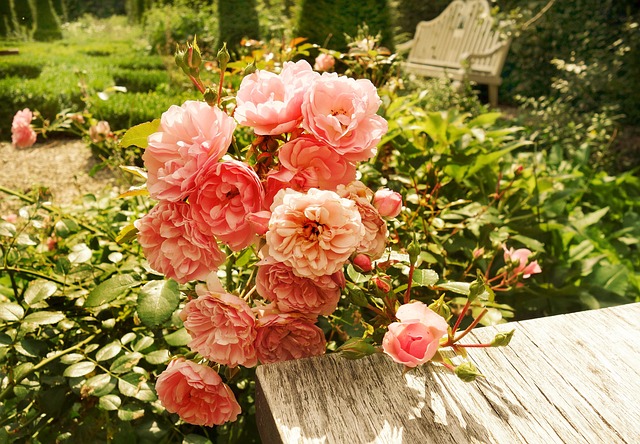Tips and Tricks to Get Your Perfect Rose Garden
If you are interested in starting a rose garden, you may wonder how to get started. Growing roses might seem overwhelming, but with a little bit of knowledge and lots of dedication, you can create a beautiful garden filled with stunning blooms. In this beginner’s guide, we will discuss how to select rose bushes at the greenhouse, how to plant them, types of fertilizer to use, common pests you should look out for and how to combat them, and when and how to prune your rose bushes.
How to select rose bushes at the greenhouse
Choosing the perfect rose bushes can be a daunting task, especially for beginners. There are many factors to consider to make sure you select the ideal rose bush. The first thing to consider is the garden space you have available. Some varieties of roses grow tall and wide, while others remain small and compact.
When selecting rose bushes at the greenhouse, you should also pay attention to the blooms. Some roses bloom once per year, while others repeat bloomers may produce blooms throughout the season. Additionally, you may want to consider the color of the rose blooms and the fragrance they produce.
How to plant rose bushes
Planting a rose bush is not difficult, but it requires a little bit of preparation. Start by selecting a spot in your garden that receives at least 6 hours of sunlight each day. You should also make sure the soil is well-draining.
Before planting your roses, remove any weeds, grass, or debris from the planting area. Dig a hole deep enough for the roots of your rose bush. Place the root ball in the hole and cover it with soil. Water the plant thoroughly, and add mulch around the base of the plant.
Types of fertilizer to use
Fertilizing your roses is essential to encourage healthy growth and beautiful blooms. Most rose gardeners prefer organic fertilizers as they do not harm beneficial organisms in the soil. Organic fertilizers such as compost, manure, and bone meal are safe and effective. You can also use synthetic fertilizers specifically formulated for roses.
When applying fertilizer, make sure you follow the instructions on the package. Over-fertilizing can harm your roses, so it is better to err on the side of caution.
Common pests you should look for and how to combat them
Pests are the most common problem rose gardeners face. Some of the most common pests include aphids, spider mites, and Japanese beetles. These pests can harm the foliage and blooms of your rose bushes.
To combat pests, you can use organic methods such as insecticidal soap or neem oil. You can also use synthetic pesticides meant for roses. Make sure you follow the instructions provided on the label.
When and how to prune your rose bushes
Pruning your roses is essential to keep them healthy and blooming. Prune your rose bushes after they finish blooming and before the first frost. Remove any dead or damaged canes and cut back the remaining canes by one-third. You should also remove any crossing branches and weak canes.
Growing and caring for rose bushes requires patience, dedication, and a love for gardening. With the right tools and knowledge, you can create a beautiful rose garden that will provide beauty and fragrance throughout the growing season. Just make sure to select the right rose bushes, plant them correctly, fertilize them properly, protect them from pests, and prune them regularly.










